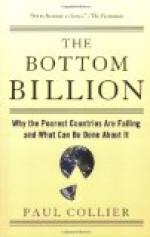KEATS, JOHN. Born at London, Oct. 29, 1795; died
at Rome, Feb. 23, 1821.
Went to Enfield School; apprenticed to
a druggist 1811-15; student in
London hospitals 1815-17; passed examination
at Apothecaries Hall
1816, but never practised. Walking
trip to Scotland 1818; his health
rapidly failed, and he sailed to Naples
in Sept. 1820, and then went
to Rome, where, until his death, he was
attended by his friend Severn.
Among his well-known poems are “On
First Looking into Chapman’s
Homer,” “Endymion,”
“The Eve of St. Agnes,” “Isabella,”
“La Belle Dame
Sans Merci,” “Ode to Psyche,”
“Ode to a Grecian Urn,” “Ode to a
Nightingale,” “Ode on Melancholy,”
“Lamia,” “Ode to Autumn,” and
“Hyperion.” Fairy Song,
193.
KIBBY, WILLIAM JUDSON. Born at Knoxville, Tenn.,
Mar. 12, 1876. Educated
in Knoxville Public Schools; graduate
of the Sheldon School. Character
analyst and industrial psychologist; newspaper
and magazine
contributor. President of the Lion’s
Club of New York; thirty-second
degree Mason. Appreciation, 219;
Helpin’ Out, 96.
KING, BENJAMIN FRANKLIN, JR. Born at St. Joseph,
Mich., Mar. 17, 1857;
died at Bowling Green, Ky., Apr. 7, 1894.
At an early age showed a
remarkable talent in music; a public entertainer
on the piano and
reciter of his own verse. His poems
collected in “Ben King’s Verse.”
If I Should Die, 13; The Pessimist,
166.
KIPLING, RUDYARD. Born at Bombay, India, Dec.
30, 1865. Educated in
England at United Service College; returned
to India 1880; assistant
editor of Civil and Military Gazette
1882-89; returned to England
1889; resided in the United States for
several years; has traveled in
Japan and Australasia. Received the
Noble Prize for Literature 1907;
honorary degrees from McGill University,
Durham, Oxford, and
Cambridge. Among his books are “Departmental
Ditties,” “Plain Tales
from the Hills,” “Under the
Deodars,” “Phantom’ Rickshaw,”
“Wee Willie
Winkle,” “Life’s Handicap,”
“The Light That Failed,” “Barrack-Room
Ballads,” “The Jungle Book,”
“The Second Jungle Book,” “The Seven
Seas,” “Captains Courageous,”
“The Day’s Work,” “Kim,”
“Just So
Stories,” “Puck of Pook’s
Hill,” “Actions and Reactions,” “Rewards
and
Fairies,” “Fringes of the
Fleet,” and “Sea Warfare.” If,
4; When
Earth’s Last Picture Is Painted,
230.
KISER, SAMUEL ELLSWORTH. Born at Shippenville,
Pa. Educated in Pennsylvania
and Ohio. Began newspaper work in
Cleveland, and from 1900 until 1914
was editorial and special writer for the
Chicago Record-Herald.
Noted for his humorous sketches, which
have been widely syndicated.
His poem “Unsubdued” is, like
Henley’s “Invictus,” a splendid
portrayal of undaunted courage in the
face of defeat. Among his books




